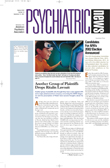Q. What is a “hammer clause”? When I reviewed the “consent to settlement” section in my medical malpractice policy, I did not find this term. Should I assume that my policy does not have a “hammer clause”?
A. The term “hammer clause” is insurance-speak for a particular kind of “consent to settlement” clause in a professional liability insurance policy.
You will not find the word “hammer” in your policy language. If your policy does have a hammer clause, however, you might find language such as, “If the insured withholds consent to a settlement that the insurance company has deemed proper, the insurance company’s duty to defend the insured will end. From that point on, the insured will incur defense expenses and incur liability for any judgment or settlement in excess of the proposed settlement.”
In other words, a hammer clause allows the insured to reject an offered settlement, but the insured assumes personal liability for the amounts greater than the rejected settlement amount. The insurance company’s liability for judgment or settlement will not be for more than the amount it would have originally paid had the insured consented. The difference between the two can be a very sizable and heavy hammer.
To learn more about the basics of professional liability insurance, call today for a copy of the Psychiatrists’ Program’s booklet
Before You Sign: Take the Mystery Out of Insurance Speak by contacting Alena Banks by phone at (800) 245-3333, ext. 316, or by e-mail at
[email protected].
Q. If I do not have a record of my treatment of a patient, can I still be drawn into a lawsuit, either as a defendant or as a witness?
A. Possession of a patient record is not relevant to whether you can be drawn into a lawsuit, either as a defendant or as a witness. Parties in a lawsuit can obtain information in a variety of ways. One way is to compel the disclosure of psychiatric records. Another way is to compel you to testify at a deposition or at a trial or hearing. You can be compelled to testify even if no written record exists.
In a situation in which the psychiatrist is a defendant, the lack of a record can hinder, or even cripple, the defense. The patient record is the primary supporting documentation available to the psychiatrist: it substantiates clinical judgment and choices; it demonstrates the knowledge and skill exercised during treatment; it provides a contemporaneous assessment of the patient’s needs and behaviors; and it documents explanations of the psychiatrist’s decisions, significant events, and revisions to the treatment plan. Without it, the attorney will have difficulty defending the psychiatrist’s actions and disputing the allegations made against him or her.
In some situations in which the psychiatrist is a witness (or potential witness), the requesting party might be satisfied with just a copy of the record, but, in its absence, that party is forced to depose the psychiatrist to give testimony to obtain the needed information.
If you are a participant in the Psychiatrists’ Program, please call the Risk Management Consultation Service (RMCS) anytime you have a question such as this one. The RMCS helpline is an important benefit of participation in the program and can help you protect your practice from potential liability. Risk management materials are also available on the program’s Web site at www.apa-plip.com.
Q. I am forming a group practice with two other psychiatrists, three psychologists, several social workers, and two nurse practitioners. Do you offer insurance coverage for such a group?
A. The Psychiatrists’ Program offers professional liability insurance coverage for multidisciplinary behavioral health care groups. There are many advantages to purchasing this coverage including consolidation of each professional’s coverage into a single policy. All of the benefits and features of the individual insurance program are available to members of the group, including unlimited access to the toll-free Risk Management Consultation Service. For more information on obtaining group liability coverage, contact Jacqueline Palumbo at (800) 245-3333, ext. 314.
More information on the Psychiatrists’ Program is available by phone at (800) 245-3333, ext. 389; by e-mail at [email protected]; or by mail at Member Service Representative, PRMS, 1515 Wilson Boulevard, Suite 800, Arlington, Va. 22209. Submit your questions for this column to Psychiatric News by e-mail at [email protected] or fax at (202) 682-6031. ▪
